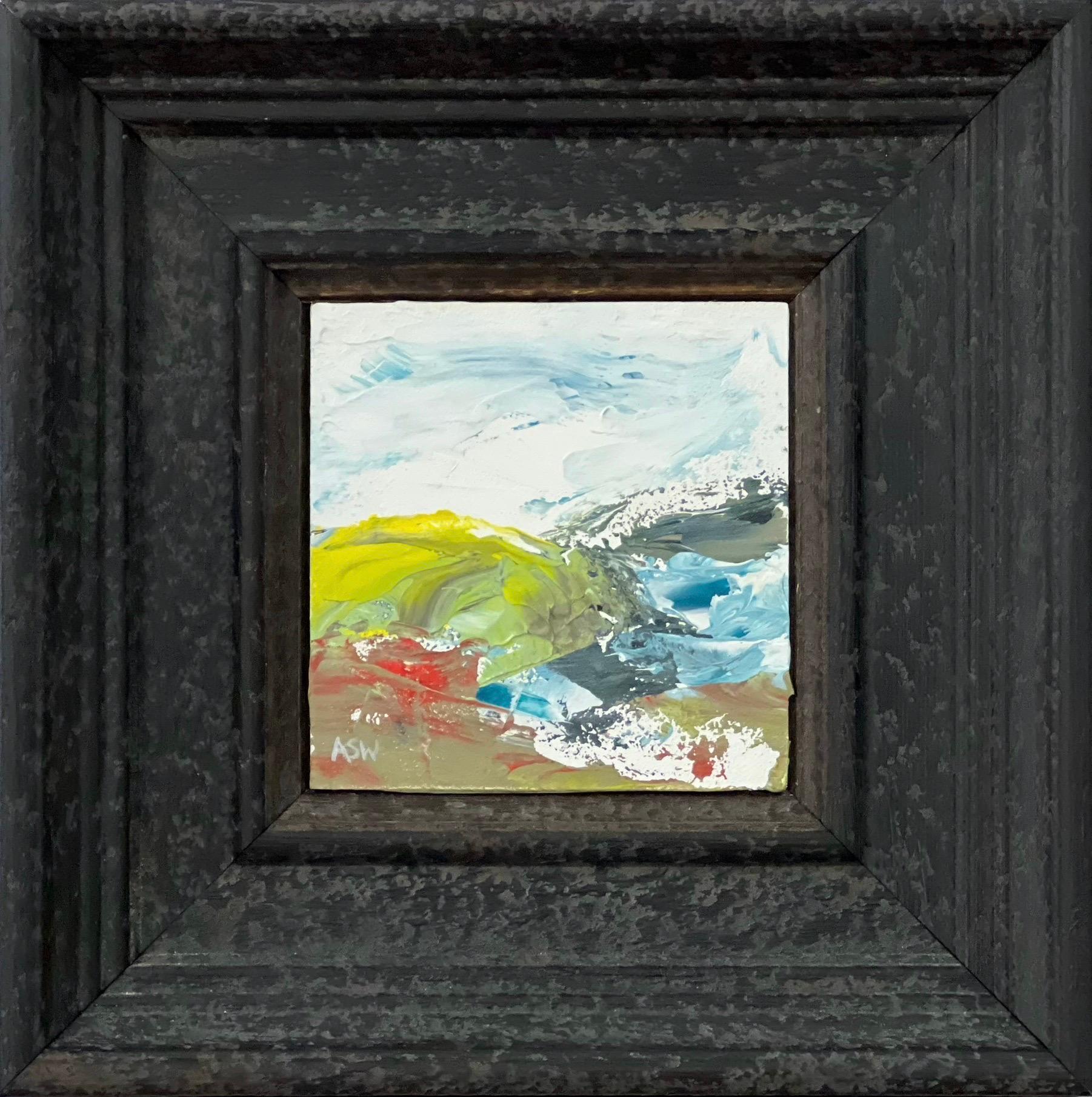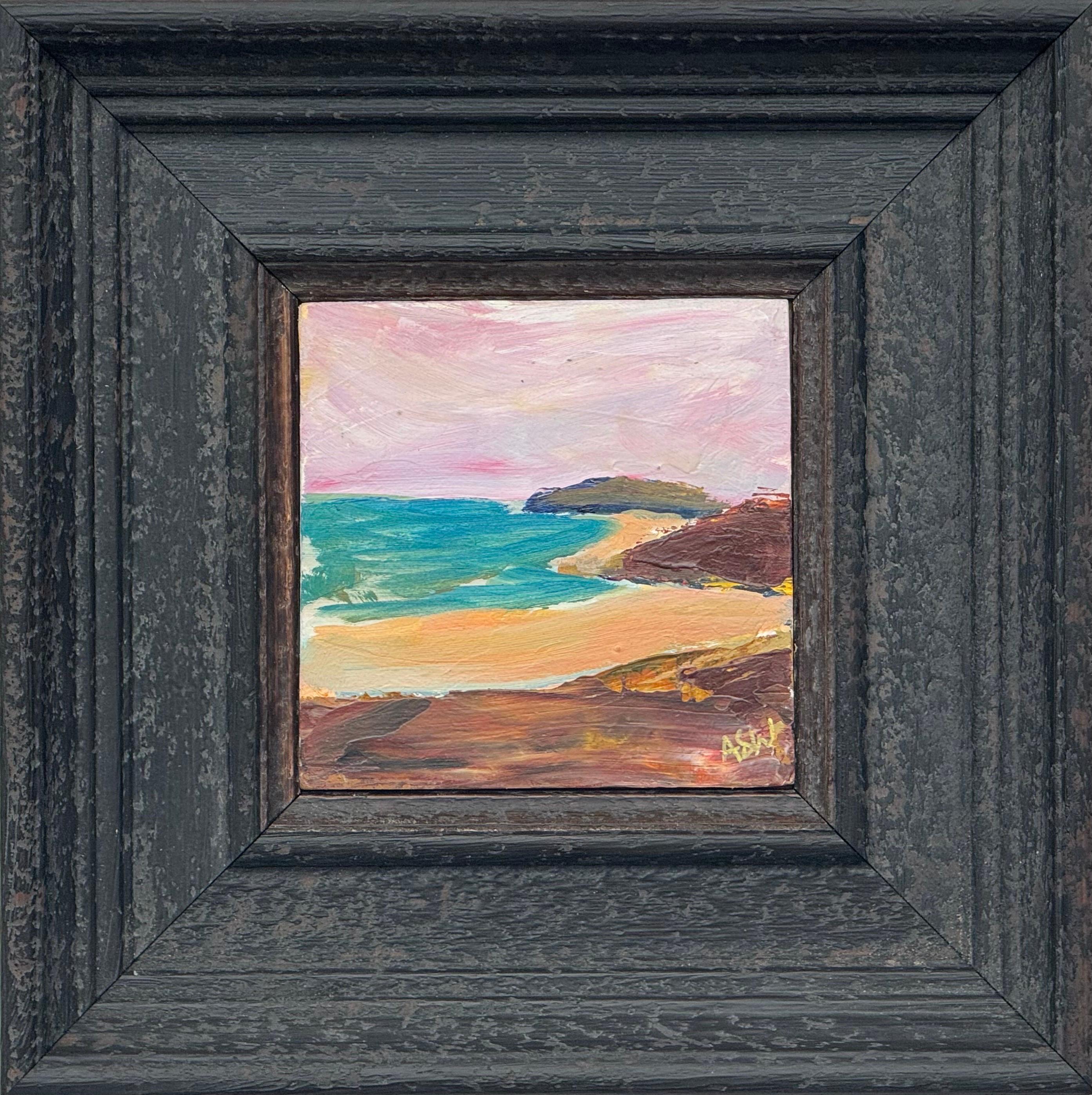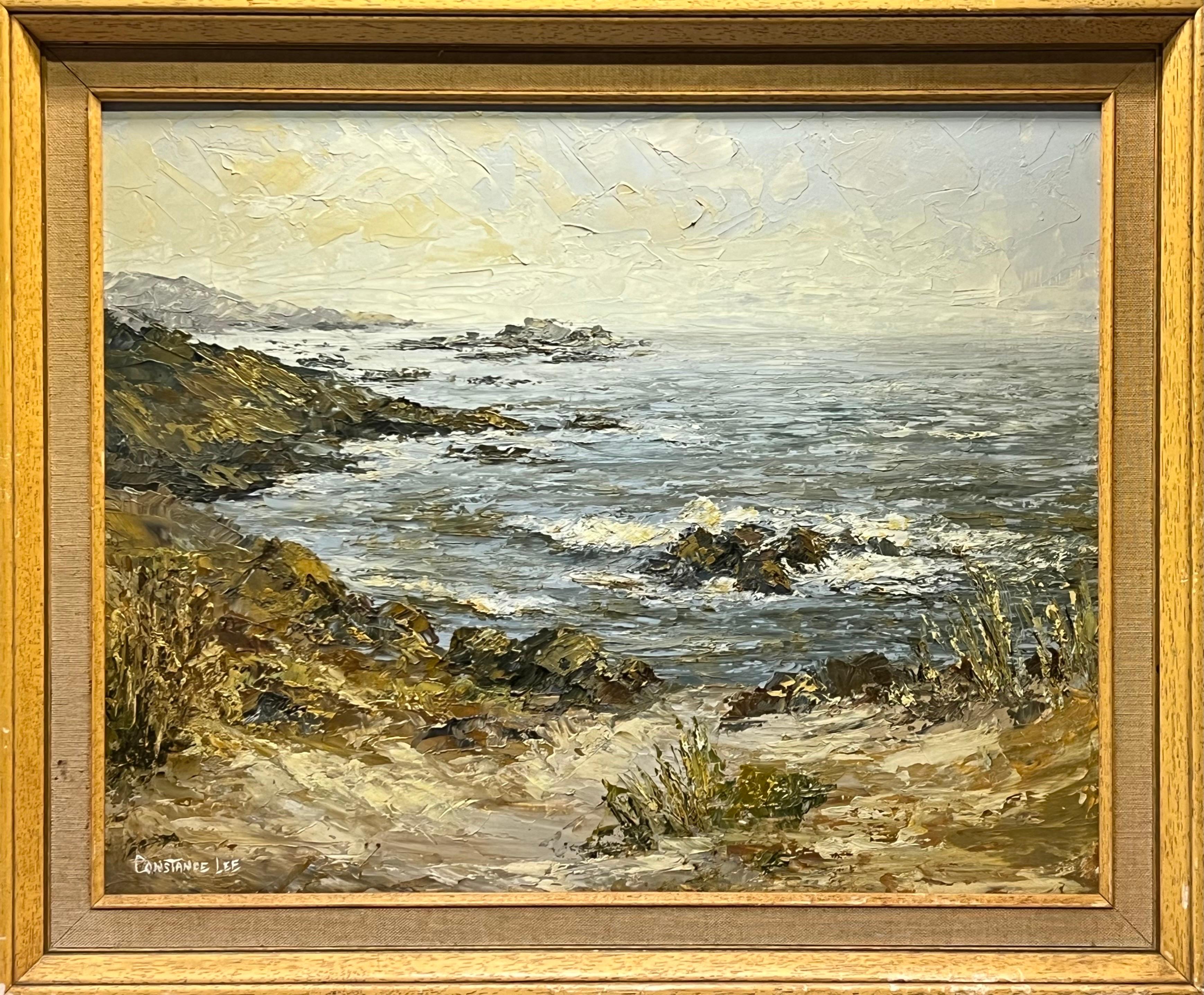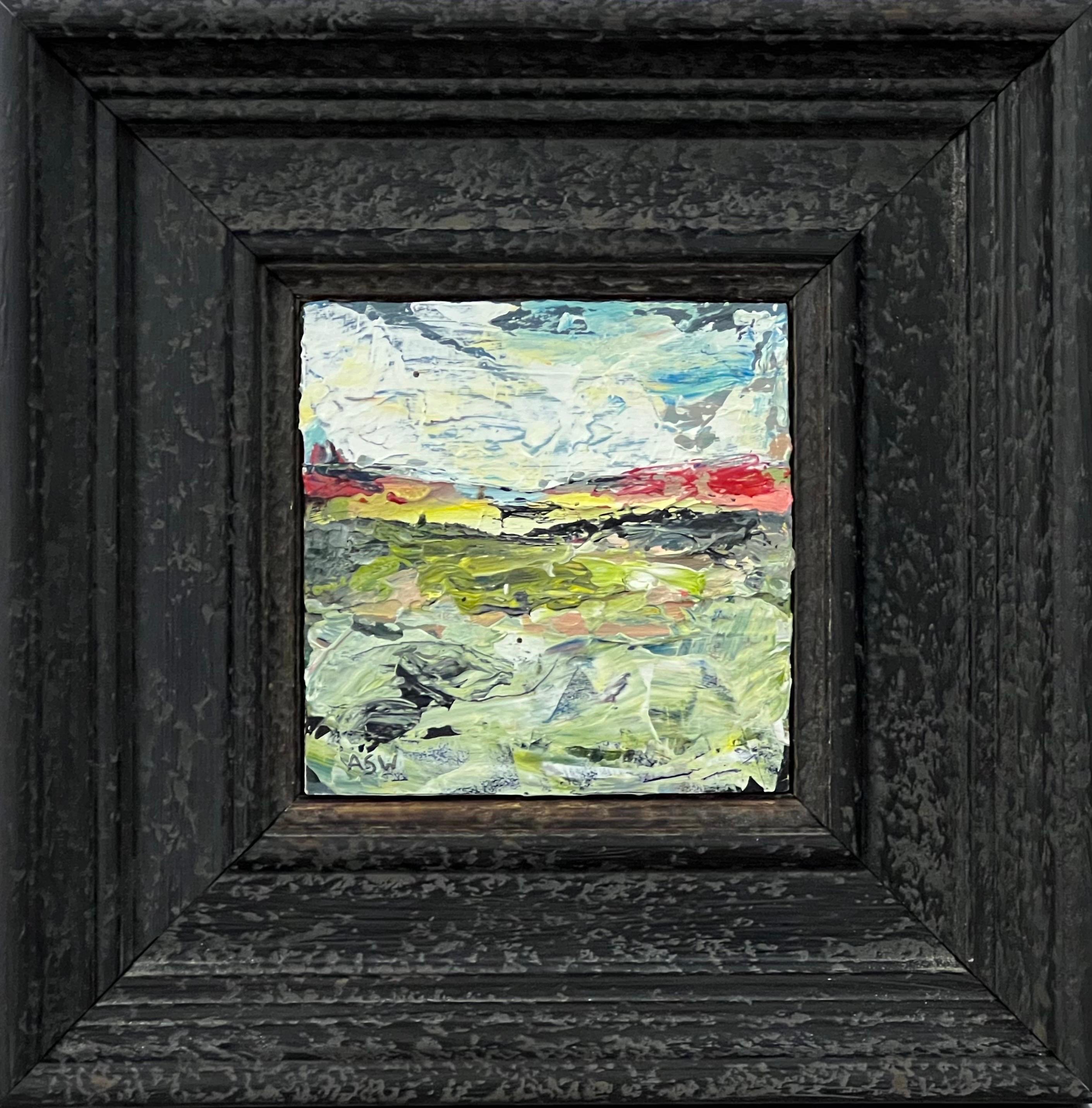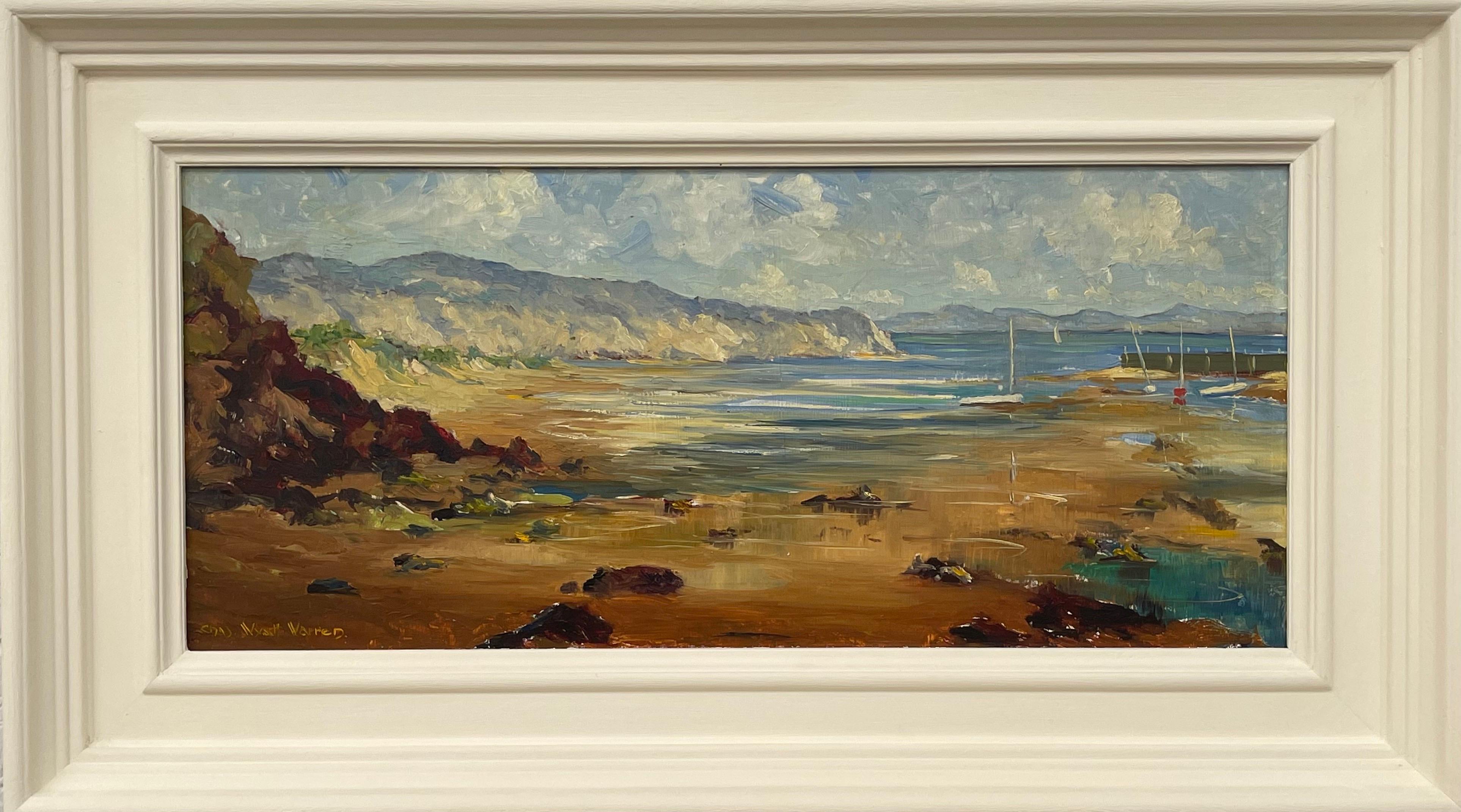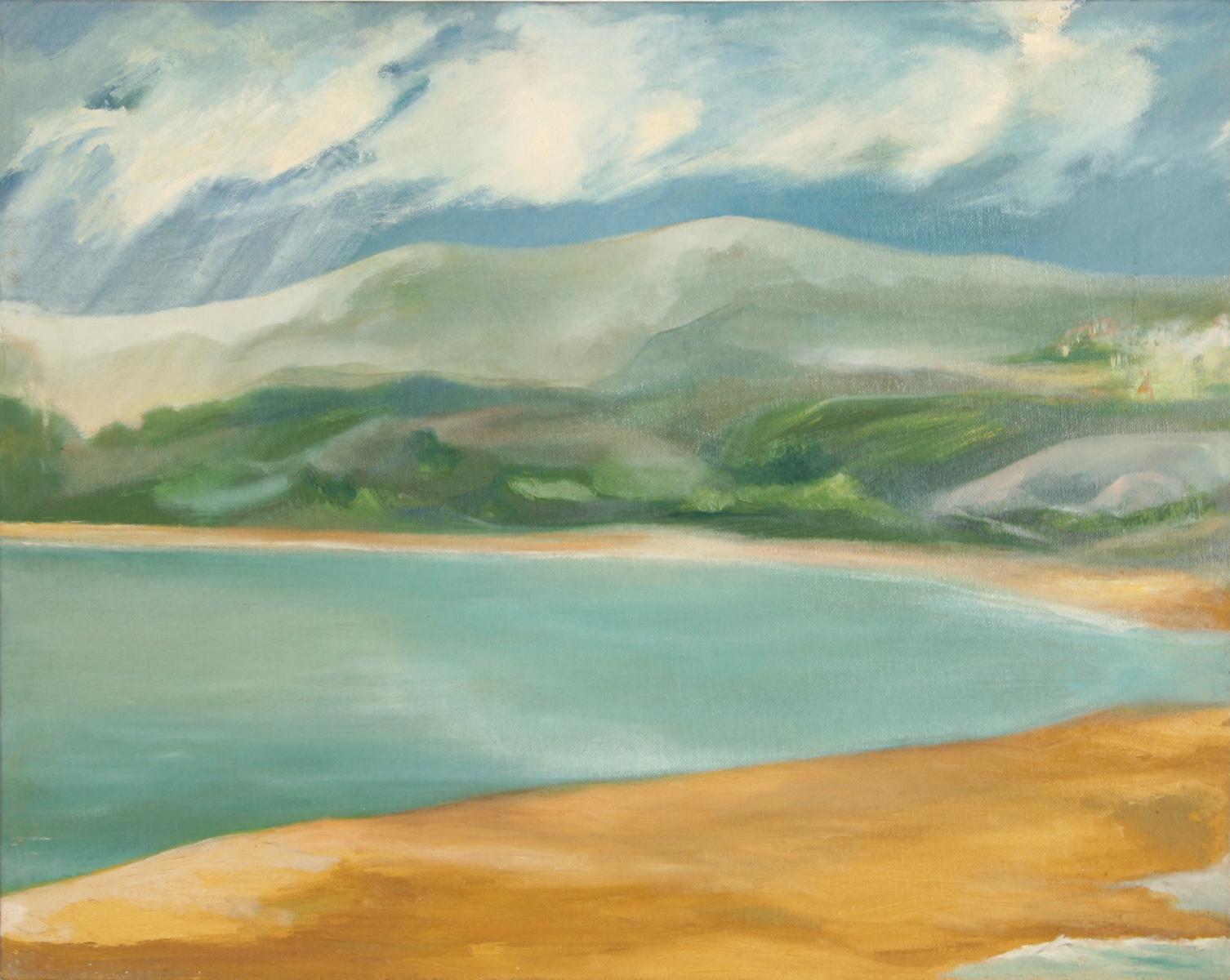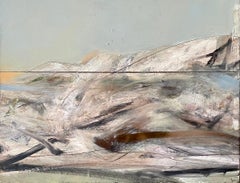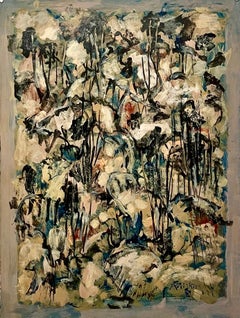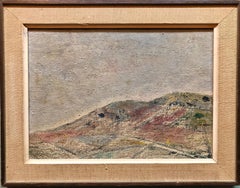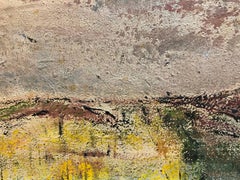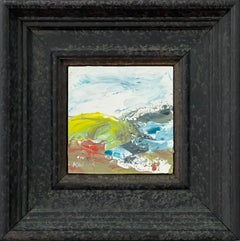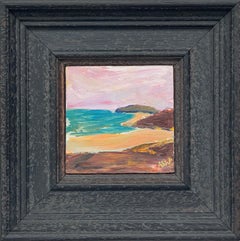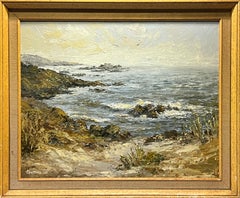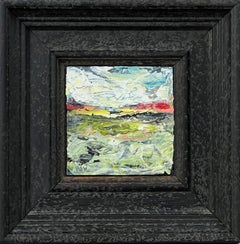Items Similar to Modernist Impasto Painting Mountain with Ocean Landscape J. James Akston
Want more images or videos?
Request additional images or videos from the seller
1 of 8
J. James AkstonModernist Impasto Painting Mountain with Ocean Landscape J. James Akston1979
1979
$600
£451.49
€521.95
CA$847.22
A$918.63
CHF 487.51
MX$11,314.12
NOK 6,042.34
SEK 5,702.58
DKK 3,895.99
About the Item
J. James Akston
Mountain Landscape by ocean
Acrylic on Board
Frame: 11.5 x 16.
Image: 5 X 9.5
Joseph James Akston was a Polish American sculptor, painter, known for surrealist abstract painting and Aubusson (for Les Ateliers Pinton Frères, tapisserie, Aubusson) tapestry artist. Born in Warsaw, Poland in 1898 he died in Palm Beach Florida in 1983. During the 1960s and '70s the entrepreneur-artist James Joseph Akston adopted a unique Surreal Expressionist style in order to present his private primordial universe and lampoon its denizens, a ribald cast of animal creatures with human foibles. A successful industrialist, he began his career with General Motors foreign operations and then started his own business.
Intermittently he studied painting, first with Jerry Farnsworth in North Truro (Mass.) and then with Jose Clemente Orozco in Mexico. In the early 1960s Akston became publisher-editor of a group of art publications which included The Magazine Arts. Initially an abstract expressionist, Akston had one-man exhibitions at the New York Convention Center and the Corcoran Museum in Washington. Since 2015 the record price for this artist at auction is $12,575 USD for Spheres Aux Triangles Aubusson Tapestry, sold at Bonhams New York in 2019.
He was a Graduate of Georgetown University. He sat on the board of the Norton Museum.
Exhibitions
1976 Hokin Gallery
1966 Gallery 63 NYC
1960 Gallery 63 Rome , Italy
Select Public Collections
National Museum, Wshington DC
Boca Museum of Art
Whitney Museum of Art, NYC
Museum of Modern Art, NYC
Museum of African Art Washington DC (Now part of Smithsonian Museum)
Bibliography: 1962 Art Voices Magazine: Editor and Chief
Beginning of the Beginning by J JAMES AKSTON
First Book of Pop Art
Akston: 25 Creative Years by Gordon Brown
Voyage to the Black Hole by Gordon Brown
Art Digest Newsletter, 1960s
- Creator:J. James Akston (1898 - 1983)
- Creation Year:1979
- Dimensions:Height: 11.5 in (29.21 cm)Width: 16 in (40.64 cm)
- Medium:
- Movement & Style:
- Period:
- Condition:good. wear to frame, refer to images.
- Gallery Location:Surfside, FL
- Reference Number:1stDibs: LU38214495492
About the Seller
4.9
Platinum Seller
Premium sellers with a 4.7+ rating and 24-hour response times
Established in 1995
1stDibs seller since 2014
1,807 sales on 1stDibs
Typical response time: 1 hour
- ShippingRetrieving quote...Shipping from: Surfside, FL
- Return Policy
Authenticity Guarantee
In the unlikely event there’s an issue with an item’s authenticity, contact us within 1 year for a full refund. DetailsMoney-Back Guarantee
If your item is not as described, is damaged in transit, or does not arrive, contact us within 7 days for a full refund. Details24-Hour Cancellation
You have a 24-hour grace period in which to reconsider your purchase, with no questions asked.Vetted Professional Sellers
Our world-class sellers must adhere to strict standards for service and quality, maintaining the integrity of our listings.Price-Match Guarantee
If you find that a seller listed the same item for a lower price elsewhere, we’ll match it.Trusted Global Delivery
Our best-in-class carrier network provides specialized shipping options worldwide, including custom delivery.More From This Seller
View AllAmerican Modernist Abstract Oil Painting Landscape Seascape
By Bruce Samuelson
Located in Surfside, FL
framed 14.5 x 17. image 9.5 x 12
Signed verso
Bruce Samuelson was born in Philadelphia and was educated at PAFA. He has taught painting and drawing at PAFA since 1973.
Professor B...
Category
1980s Abstract Abstract Paintings
Materials
Masonite, Oil
Australian American D. Rankin Abstract Expressionist Oil Painting Rocky Hillside
By David Rankin
Located in Surfside, FL
David Rankin, American (b. 1946)
Rocky Hillside, (1990)
Oil on paper
Hand signed lower right, signed and titled verso.
30 x 22 1/2 inches
David Rankin is a New York-based, British-b...
Category
1990s Abstract Expressionist Abstract Paintings
Materials
Paper, Oil
Untitled, Lonely Abstract Landscape Italian Expressionist Oil Painting
By Ivan Kurach
Located in Surfside, FL
Genre: Expressionist
Subject: Landscape
Medium: oil
Surface: board
Country: Italy
unsigned
Ivan Kurach (1909 – 1968) Ukranian-Italian lived and studied in Italy. Born in the Ukraine...
Category
Mid-20th Century Modern Figurative Drawings and Watercolors
Materials
Oil, Board
Untitled, Lonely Abstract Landscape Italian Expressionist Oil Painting
By Ivan Kurach
Located in Surfside, FL
Genre: Expressionist
Subject: Landscape
Medium: oil
Surface: board
Country: Italy
Dimensions: 14.25X8.25
unsigned
Ivan Kurach (1909 – 1968) Ukranian-Italian lived and studied in Ita...
Category
Mid-20th Century Modern Figurative Drawings and Watercolors
Materials
Gouache
Mod Abstract Expressionist Modernist Oil Painting Edward Avedisian Color Forms
By Edward Avedisian
Located in Surfside, FL
Edward Avedisian ( 1936-2007 )
17.5 X 8.75
Oil paint on wood panel
This is not signed on front. It bears his name verso.
Provenance: Hudson, N.Y. estate of noted Art Collector Alber...
Category
1960s Abstract Expressionist Landscape Paintings
Materials
Oil, Wood Panel
American Modernist Oil Painting Gestural Landscape WPA Artist Group of 10
By Ben-Zion Weinman
Located in Surfside, FL
Born in 1897, Ben-Zion Weinman celebrated his European Jewish heritage in his visual works as a sculptor, painter, and printmaker. Influenced by Spinoza, Knut Hamsun, and Wladyslaw Reymont, as well as Hebrew literature, Ben-Zion wrote poetry and essays that, like his visual work, attempt to reveal the deep “connection between man and the divine, and between man and earth.”
An emigrant from the Ukraine, he came to the US in 1920. He wrote fairy tales and poems in Hebrew under the name Benzion Weinman, but when he began painting he dropped his last name and hyphenated his first, saying an artist needed only one name.
Ben-Zion was a founding member of “The Ten: An Independent Group” The Ten” a 1930’s avant-garde group, Painted on anything handy. Ben-Zion often used cabinet doors...
Category
Mid-20th Century Expressionist Figurative Paintings
Materials
Oil, Wood Panel
You May Also Like
Impasto Abstract Seascape Landscape Miniature Study Contemporary British Artist
By Angela Wakefield
Located in Preston, GB
Impasto Abstract Seascape Landscape Miniature Study by Contemporary British Artist Angela Wakefield
Art measures 5 x 5 inches
Frame measures 11 x 11 inches
Framed in a high qualit...
Category
21st Century and Contemporary Abstract Expressionist Landscape Paintings
Materials
Paint, Acrylic, Board
Impasto Abstract Seascape Landscape Miniature Study Contemporary British Artist
By Angela Wakefield
Located in Preston, GB
Impasto Abstract Seascape Landscape Miniature Study by Contemporary British Artist Angela Wakefield
Art measures 5 x 5 inches
Frame measures 11 x 11 inches
Angela Wakefield – “Coas...
Category
21st Century and Contemporary Abstract Expressionist Landscape Paintings
Materials
Paint, Acrylic, Board
Californian Coastline Seascape Landscape Impasto Painting by 20th Century Artist
Located in Preston, GB
Californian Coastline Seascape Landscape Impasto Oil Painting by 20th Century Artist, Constance Lee
Art measures 19 x 15 inches
Frame measures 21 x 17 ...
Category
20th Century Impressionist Landscape Paintings
Materials
Oil, Board
Impasto Abstract Seascape Landscape Miniature Study Contemporary British Artist
By Angela Wakefield
Located in Preston, GB
Impasto Abstract Seascape Landscape Miniature Study by Contemporary British Artist Angela Wakefield
Art measures 5 x 5 inches
Frame measures 11 x 11 inches
Framed in a high qualit...
Category
21st Century and Contemporary Abstract Expressionist Landscape Paintings
Materials
Paint, Acrylic, Board
Impasto Oil Painting of Harbour Scene in Wales by 20th Century British Artist
By Charles Wyatt Warren
Located in Preston, GB
Impasto Oil Painting of Abersoch Harbour Scene in Wales by 20th Century British Artist Charles Wyatt Warren (1908-1993)
Art measures 21 x 9 inches
Frame...
Category
Mid-20th Century Land Landscape Paintings
Materials
Board, Oil
Mountain Shore, Oil on Board Painting by American Artist John F. Leonard
Located in Long Island City, NY
Mountain Shore (53)
John F. Leonard
American (1921–1987)
Date: circa 1965
Oil on Board
Size: 16 in. x 20 in. (40.64 cm x 50.8 cm)
Category
1960s American Modern Landscape Paintings
Materials
Oil, Board
More Ways To Browse
Tapestry Artist
American Western Landscape Paintings
Cabin Oil Painting
Caribbean Landscapes
Chicago Fire
Chicago Landscape Painting
Cornish Artist
Country Lane Painting
Early California Art
Farm Scene Paintings
Florida Watercolors
Full Moon Painting
Georgie Dowling
Giverny Painting
Michael Snow
New York Cityscape Painting
Oil Ducks
Oil Painting Knight
